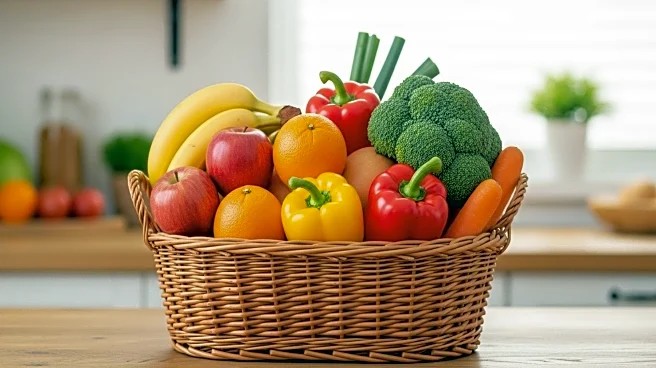What is the story about?
What's Happening?
Americans are facing significant increases in grocery costs due to factors such as inflation, tariffs, and extreme weather conditions. According to the USDA's Economic Research Service, food prices have risen by 24% from 2020 to 2024, with coffee prices alone surging by 45% year over year as of August. Consumer Reports offers several strategies to help consumers manage these rising costs. Key recommendations include shopping with a plan, opting for generic or store-brand products, and considering meatless meals to save money. Additionally, proper storage of groceries can extend the life of produce, and joining store loyalty programs can provide further discounts. For those in need, resources such as food banks and the Supplemental Nutrition Assistance Program (SNAP) are available.
Why It's Important?
The rising cost of groceries is a significant concern for many American households, with 77% of people reporting a noticeable impact on their budgets. The strategies provided by Consumer Reports can help mitigate these financial pressures, allowing families to stretch their food budgets further. By choosing generic brands and reducing meat consumption, consumers can potentially save hundreds of dollars annually. These savings are crucial in a time when many are struggling to make ends meet. Additionally, the emphasis on proper food storage and planning can reduce waste, further maximizing the value of each grocery trip. Access to resources like food banks and SNAP benefits is also vital for low-income families, ensuring they have access to necessary nutrition despite economic challenges.
What's Next?
As grocery prices continue to rise, consumers may increasingly turn to cost-saving measures and community resources to manage their expenses. Retailers might respond by expanding their generic product lines and enhancing loyalty programs to retain customers. Policymakers could also face pressure to address the underlying causes of food inflation, such as supply chain disruptions and trade policies. The ongoing economic situation may lead to further discussions on food security and the need for supportive measures for vulnerable populations.















